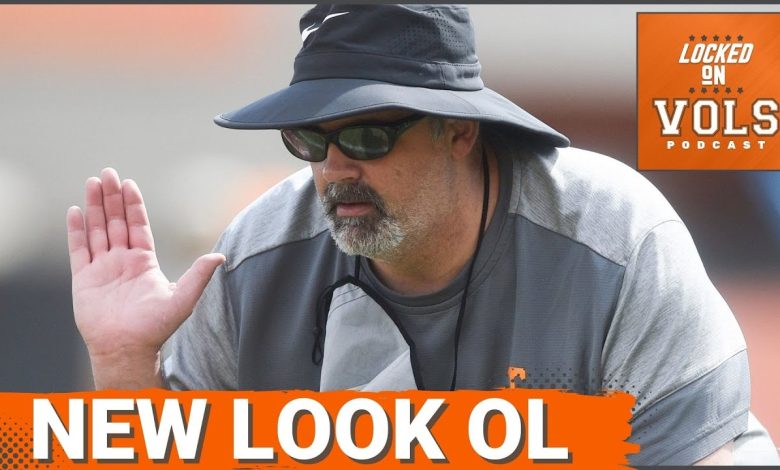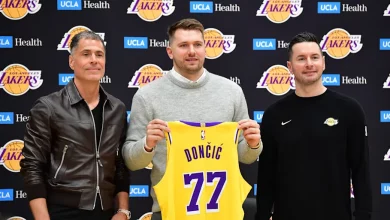The potential gamechanger for Tennessee in 2025 that isn’t getting talked about enough that could save the Vols’ offense

Tennessee Vols supporters have been attempting to find out why the offense was not as dynamic in 2024 as it was in 2021 and 2022 (Josh Heupel’s first two seasons as head coach).
Tennessee scored 46.1 points per game in 2022.
In 2024, Tennessee scored an average of 35.7 points per game.
The difference is significantly greater in conference matchups. Tennessee scored 43.3 points per SEC game in 2022.
This past season, the Vols averaged 25.0 points per game in SEC play.
There are numerous explanations for the decline in productivity. For starters, conference opponents have a better understanding of how to counter Tennessee’s offense after watching it for multiple years.
The Vols have occasionally struggled with execution. Missed throws, a lack of spacing, poor pass protection, and fumbles were all issues Tennessee faced in 2024.
Finally, pass protection is often the most significant contributor to poor offensive performance. This is not to say that the offensive line is entirely to blame. It’s just that when pass protection fails, everything else on the offensive side of the ball suffers. The offensive line is the only position on the field that determines how the rest of the game will unfold. If something goes wrong early in a play, the rep is usually doomed.
In 2024, Tennessee struggled especially at the right tackle position.
Tennessee ranked sixth in the SEC in terms of sacks allowed per game this season (2.31 per game). The Vols surrendered 30 total sacks in 2024.
Eight came from right tackles John Campbell and Dayne Davis (according to 247Sports, they allowed four each).
According to 247Sports, Campbell allowed a pressure in seven out of eight SEC games in 2024.
Fans and media often focus on quarterback play (Hendon Hooker excelled in 2022) and offensive coordinator Alex Golesh’s departure from Tennessee to become head coach at USF when discussing the Vols’ offense.
In 2022, Darnell Wright, a first-round choice by the Chicago Bears in the 2023 NFL Draft, was a beast at right tackle for the Volunteers.
Wright played 895 snaps for Tennessee in 2022 and allowed no sacks. According to PFF, Wright was the only offensive lineman in the SEC in 2022 who played more than 850 snaps and had an efficiency rating of 99.0 or above.
Tennessee’s right tackles struggled with more than just sacks and pressures in 2024.
Penalties were a serious issue.
Wright committed only two penalties in 2022.
In 2024, Campbell alone committed 11 penalties.
That represents a significant differential in performance at one of the most important spots on the field. And, as I previously stated, if things aren’t right up front, the rest of the play probably won’t be successful.
The good news for Tennessee is that help is on its way.
David Sanders Jr., the No. 1 offensive lineman in the nation, is anticipated to start for the Vols next season. For the time being, Sanders is expected to play right tackle, while Lance Heard, a former LSU transfer, will remain at left tackle.
Sanders is a big talent upgrade for Tennessee’s tackle position. While it is always difficult to rely on a true freshman, the hope is that Sanders is a transcendent player who can be a game changer from the start.
That does not mean it will be perfect. Even if Sanders has an outstanding true freshman season, there will undoubtedly be some growing pains. But there’s plenty of reason to assume he’ll give a significant boost in production next fall.
For example, Colorado true freshman offensive tackle Jordan Seaton, the top offensive lineman in the 2024 recruiting class, started for the Buffaloes and had an outstanding season.
Seaton allowed two sacks in his first two professional games. He subsequently allowed zero sacks the rest of the season.
Tennessee supporters would gladly accept that level of production in Sanders’ true rookie season.
Getting excellent play from the right tackle position after receiving below-average play in 2024 is critical if the Vols’ offense is to take a significant stride forward in 2025. It makes no difference how good the wide receivers are at getting open if the quarterback does not have enough time to react. The signing of Sanders might be one of the key factors in Tennessee’s offense returning to elite status.









